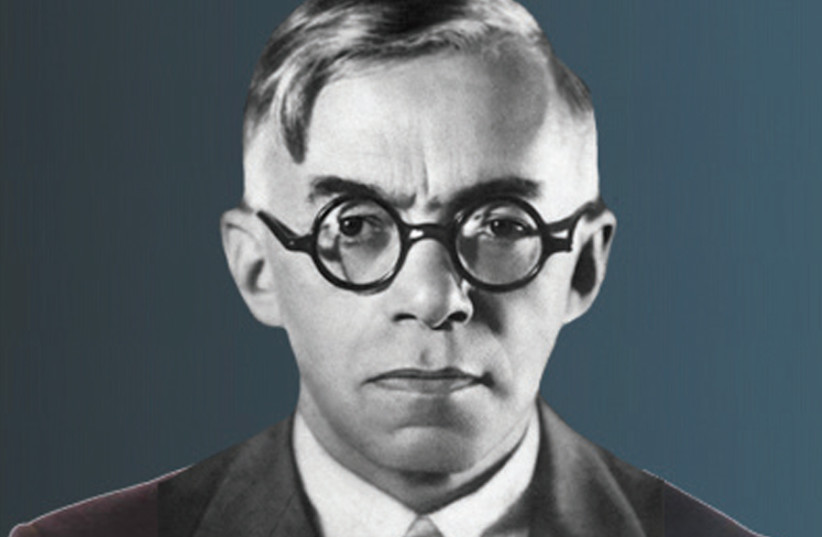In recent years, hologram technology and artificial intelligence have been able to create images of people who are no longer with us that can speak in their original voices, almost like resurrection.
I wonder what would happen if we resurrected Theodor Herzl today, exactly 119 years after his passing. What would happen if Herzl walked down from Mount Herzl, took a tour of Jerusalem, and ascended the podium of the Knesset. What would he say?
If you review a quick checklist of the principles of Herzl’s political Zionism, you will read: “If we are given sovereignty over a land on earth, we will provide everything else ourselves.”
Which is to say, we have a national home for the Jewish people. We came to Israel to build and be built, and even to export, sell and make acquisitions. Therefore, Herzl should be satisfied with our hi-tech success, even though most of the Jewish people are not yet in Israel and we have yet to create the exemplary society he envisioned.
Zev Jabotinsky, the Revisionist Zionist leader, however, might have a lot to say to us today. When he spoke at the convention of the New Zionist Organization in Vienna in 1935, he was not content with only Herzl’s political solution.

He redefined the goal and called it “Zionut romema,” or “uplifted Zionism.” This means that the establishment of the Jewish state is the first step in a grand plan. It will be followed by a second step, which is the modern exodus of the entire Jewish people – that is, a complete cessation of exile. The third and final step is the creation of a national culture, which will shine a light over the whole world, as it is written: “For from Zion shall come forth the Torah.”
How can we complete Israel's incomplete Zionist picture?
IN THIS GAP between the satisfied Herzl and the expectant Jabotinsky, I ask myself where we stand today. What will complete the Zionist picture? Because let’s be honest – the picture is incomplete. There are at least some dramatic and central challenges that we must and are required to deal with urgently.
It can be said with pride that 2022 was a record year for aliyah in the last two decades. After the outbreak of the coronavirus pandemic and the war in Ukraine, tens of thousands of olim (immigrants) have come to us. But aliyah is only a small part of the Zionist story. We have already gone through several aliyah operations to understand that in the light of history, there is no aliyah without integration.
Our country must improve its ability to accommodate, accept, integrate, and find a proper cultural, social, and occupational place for all its olim.
Newcomers encounter continuous bureaucratic difficulties, not to mention the lack of support from us veterans and sabras, who must be encouraged to absorb aliyah.
It is no secret that antisemitism continues to grow and has reached serious proportions: shooting in synagogues, incitement in the media against the State of Israel, and calls for boycotts.
A few months ago, a student at an American college told me that she had to take down the mezuzah in her dorm because she was afraid of antisemitic attacks. And it’s not just in colleges. In the United States, Jewish youth lower their Jewish-Zionist profile in order to maintain social status around their non-Jewish friends. The latest data indicates that 60% of the world’s young Jews are assimilating.
And in the end, we also have a responsibility to strengthen Jewish identity, because the Torah – not just in the religious sense, but as our broad, deep, and rooted Jewish identity – does not come exclusively from Zion.
Many Jewish schools around the world no longer teach Hebrew. The distance from the sources of culture is increasing, and Judaism as an identity is losing recognition. All this, while in the world, the number of Jews has not increased, and we have not yet reached the same numbers that we had before World War II.
So maybe Herzl would have been impressed by the state we established, and perhaps Jabotinsky would have a lot of complaints, but we in the World Zionist Organization know that the work is far from over. That is why we are sending 300 Israeli teachers as shlichim (emissaries) around the world, fighting antisemitism as if it were a pandemic and seeking to be the latest “essential app” of new olim.
This is exactly why we are here, 119 years after Herzl passed away, and left within us his vision and plan of action for all of us.
The writer is chairman of the World Zionist Organization.
